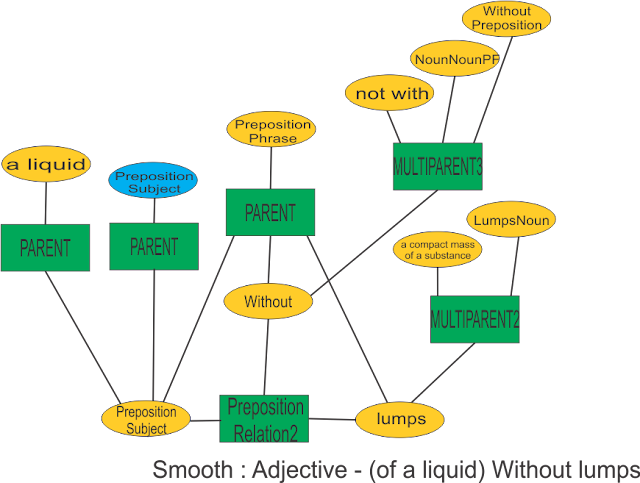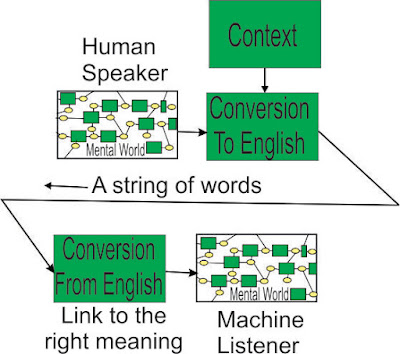Preposition Phrase
A preposition phrase is made up of a Preposition Subject
(the object the preposition connects to), the preposition, and the Preposition
Object. Dictionary definitions are usually compressed, making them difficult to extract meaning.
The Preposition Subject may be:
An
action (a verb which changes a state (he put the money on the table)
A noun phrase
A clumped object (he put (the
money on the table) into his bank account)
A Verb
Phrase
A
predicative adjective
A
clause
A
number (3 into 5)
A
participial
The Preposition Object may be:
A noun
phrase
A clumped object (he put (the
money on (the table in his office))
A
Participial
A
clause
A
predicative adjective
An
adverb
The Preposition Subject may not appear in the definition (a
placeholder is inserted if so).
The Preposition Subject may be straightforward
(of eyes) bulge so as to appear
to burst out of their sockets
Or it may be probabilistic
(especially of wrongdoing)
blatant
The “especially” is taken to mean that in this case it
applies to “wrongdoing” and its near synonyms – mischief, crime, misadventure.
If no definition seems appropriate, based on the Preposition
Subject, the seemingly most likely definition of the most likely target will be
chosen, clumping any prepositional phrases that get in the way.





Comments
Post a Comment